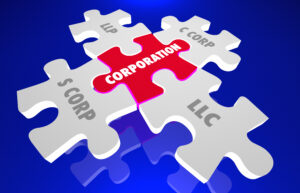It Pays to Be Rich for These Five Tax Breaks

It Pays to Be Rich for These Five Tax Breaks
Although it’s true that the ultra-wealthy are heavily taxed, and in many cases unfairly, there are also some tax break advantages that favor the upper class more than those in the middle. Let’s take a look at some of these breaks.
Most common and first of five tax breaks
* Mortgage Interest – this deduction is available to all; however, because it is tied to the marginal tax rate of each taxpayer it tends to help people with higher income more. The numbers vary, but it has been reported that those with incomes of $250,000 or higher have an average write-off almost $5,500, compared to about $525 for those with incomes between $40,000 and $75,000. The numbers vary by state, but in general, more people with incomes of $100,000 or higher are taking advantage of this break than those who make $75,000 or less. However, there is an OK alternative for those with lower incomes. The Standard Deduction for married filing jointly is $12,200 for 2013 and $12,400 for 2014.
Rich get richer
* Capital Gains – many wealthy people make their income from capital gains, which are only taxed at 20 percent plus 3.8 percent for AGI over 450,000, compared to the 39.6 percent maximum tax rate for regular income.
The wealthy own stocks
* Step-up in Basis – this tax break basically enables the rich to pass off their assets that have increased in value to their beneficiaries while never having to pay taxes on them. Your heirs will only pay tax on the increased value from their value at the time the assets were transferred price to the fair value at the time of sale, should the heir choose to sell the assets.
Estate plan
* Retirement Plans – Available to everyone, retirement plans are even more favorable to the wealthy because they tend to have more money to put away. Therefore, they tend to get more tax benefits than the middle class. There are, however, limitations on the amount that can be contributed ($17,500 for 401(k), 403(b) plans in 2014) and the amount of contributions that can be deducted is phased out for higher incomes (IRA contributions phase out for married filing jointly incomes between $181,000 and $191,000 for 2014).
If wealthy, consider philanthropy
* Charitable Deduction – this is similar to the mortgage deduction. The higher your income and the more you donate, the more valuable the deduction. The deduction is limited to 50% of the taxpayers AGI.
If you aren’t taking full advantage of these favorable tax deductions, then you should contact the professionals at GROCO for help. We can make sure that you’re maximizing your tax return and getting all the benefits to which you are entitled. Contact us today for more details and start saving more of your money.
We hope you found this interview “It Pays to Be Rich for These Five Tax Breaks” helpful. If you have questions or need expert tax or family office advice that’s refreshingly objective (we never sell investments), please contact us or visit our Family office page or our website at www.GROCO.com. Unfortunately, we no longer give advice to other tax professionals gratis.
To receive our free newsletter, contact us here.
Subscribe to our YouTube Channel for more updates.

Alan Olsen, is the Host of the American Dreams Show and the Managing Partner of GROCO.com. GROCO is a premier family office and tax advisory firm with clients all over the world.

GROCO.com is a proud sponsor of The American Dreams Show.
Tax S-corporation
Saving Taxes with an S Corporation An S corporation election allows the shareholders to preserve the benefit of limited liability for the corporate form while at the same time being treated as partners for federal income tax purposes. Ever wondered why so many small businesses operate as an S corporation? Simple. An S corporation saves…
Sec1045 Partnerships
Sec1045 Partnerships This document contains final regulations relating to the application of section 1045 of the Internal Revenue Code (Code) to partnerships and their partners. These regulations provide rules regarding the deferral of gain on a partnership’s sale of qualified small business stock (QSB stock) and a partner’s sale of QSB stock distributed by a…
Sec179 Businessequipment
Updated: 11/12/10 Most new business equipment can be either depreciated over its useful life or expensed immediately under Internal Revenue Code Section 179. The maximum deduction is based on the following schedule for the date in which the tax year begins. Each 1040, whether Single or Joint, is limited to one maximum. 179 expenses passed…
Sec1244 Small Business Stock Sales
Sec1244 Small Business Stock Sales Section 1244 of the Internal Revenue Code, the small business stock provision, was enacted to allow shareholders of domestic small business corporations to deduct as ordinary losses, losses sustained when they dispose of their small business stock. In order to receive this beneficial treatment, the Code prescribes specific requirements for:…



